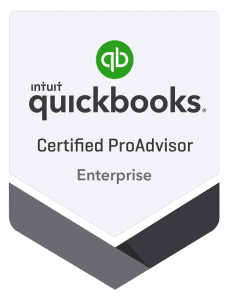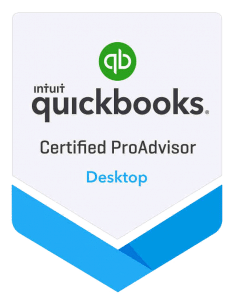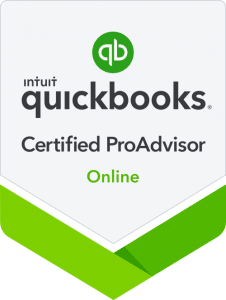Filing a tax return isn’t just about punching numbers into a form and hoping for the best. Small business owners face multiple moving parts when it comes to tax reporting, and it’s easy for something to slip through the cracks if they’re not paying attention. Even small mistakes can lead to penalties, delays, or confusion that takes extra time and resources to sort out.
That’s why catching errors early or, even better, avoiding them completely is key. One overlooked deduction, a miscalculated entry, or a mismatched number can cost your business more than you think. Knowing what can go wrong and how to prevent it helps you stay ahead of problems, keep your finances on track, and feel more confident come filing season.
Cloud Bookkeeping specializes in accounting and bookkeeping support for small businesses. With a strong grasp of financial details and QuickBooks expertise, we’re here to help clients avoid mistakes and stay filing-ready all year long.
Understanding Common Tax Return Errors
Mistakes can happen to anyone, even experienced business owners. But on a tax return, even a simple oversight can lead to a notice from the IRS or a frustrating delay in processing. Some errors happen more often than others, and they usually come from rushing, assuming, or relying on outdated information.
Here are some of the most common tax return errors businesses tend to make:
– Entering incorrect or inconsistent income figures
– Forgetting to report all sources of income
– Using the wrong tax year
– Mixing up business and personal expenses
– Misclassifying workers (like labeling an employee as a contractor)
– Missing signatures or dates on paper forms
– Failing to carry over previous year losses or credits when applicable
Any of these issues can delay your return, result in fines, or cause problems in your yearly financial picture. These errors often come from incomplete records, rushed submissions, or simply forgetting to review every form and figure.
For example, if someone forgets to input income from a 1099 form received for a freelance project, but that same income is reported by the payer, the IRS could flag your return for inconsistency. That can begin a long process of correction that eats up your time and energy.
Knowing what to look out for is your first step. But more importantly, putting good routines into place can stop most mistakes before they ever occur.
Key Steps to Avoid Tax Return Errors
There’s no shortcuts when it comes to tax filing, but taking some small, steady steps throughout the year can make a huge difference. The idea isn’t to overhaul everything overnight. Instead, aim to build habits that take the guesses and stress out of the entire process.
1. Keep Accurate and Organized Records
Staying organized all year long is your best move. If you’re not tracking income and expenses regularly, it becomes harder to get your return right when deadlines hit. Set up a folder system that works for you. Digital or physical, it should help break down categories clearly. That way, when it’s time to prep your return, you have everything you need already in place.
Use bookkeeping software made for small businesses. This reduces manual input and helps catch math errors. Make it a monthly rule to scan receipts, tally your bank transactions, and match them up with your books. The more consistent you are, the smoother tax season feels.
2. Double-Check Your Data
Before hitting submit or handing your papers over to a tax preparer, take a few extra minutes to review everything. Confirm that your reported income lines up with the forms you’ve received. Go over your deductions to make sure they match eligible expenses. Check the spelling, digits, and accuracy of identification numbers like your Employer Identification Number (EIN) or Social Security Number.
This is where many last-minute mistakes happen. Maybe a number gets flipped, an expense gets listed under the wrong category, or you misread a form. Slowing down for this final review often catches what a fast filing can miss.
3. Stay Informed About Tax Laws
Tax rules change more often than most people think. A credit that applied last year could no longer be valid now. New reporting standards might come up and alter how you should file. If you’re relying only on past knowledge, you could easily miss something big.
You don’t need to become a tax expert. But making it a habit to read quick updates from sources like the IRS or small business news outlets can help you stay in the know. Subscribing to email alerts or tax update bulletins also goes a long way in making sure you don’t get caught off-guard by a change.
Each of these moves builds a better foundation for tax time. Think of it like routine maintenance. When you’re keeping things in check regularly, tax return season becomes a review instead of a repair job.
The Role of Professional Assistance
Filing might be something you’ve always handled in-house, but when deadlines stack up or the financials grow more complex, having help makes a huge difference. This is where professional assistance from accountants and bookkeepers becomes especially valuable.
A trusted accounting and bookkeeping service like Cloud Bookkeeping checks everything with a sharper eye. From spotting missed deductions to confirming your forms are in order, our role is to prevent mistakes before they become real problems. We help you stay on top of tax changes, make sure your records tell the full story, and keep your finances audit-ready.
More than that, we take a task that might feel confusing and make it more manageable. You focus on your business, while we handle the reporting, organizing, and double-checking. Sometimes the cost of trying to DIY the entire process ends up greater than the investment in expert help.
With our support, stress levels drop and confidence rises. Tax filing transforms from a source of anxiety into just another line on the to-do list that gets done right.
The Importance of Timely Filing
Deadlines have a way of sneaking up. One week it feels far away, and the next you’re scrambling to get everything sorted. Missing a tax deadline doesn’t just mean late fees. It can cause gaps in your financial reports or block access to refunds you’re counting on.
The best way to stay ahead is by staying aware. Mark your calendars with key filing dates, set alerts on your phone, or spread visible reminders across your workspace. No method is wrong—just go with the one that makes it hard to forget.
Also helpful is keeping a checklist. As you gather documents and forms throughout the year, keep track of what you already have and what’s still missing. When it’s finally time to file, you’ll know exactly what to submit without racing to find last-minute paperwork.
When you file on time, it opens the door to better forward planning. You can make smart decisions with the full picture of your business’s financial health in front of you—not one that’s bogged down by delays or unanswered questions.
Simplifying Your Tax Process with Cloud Bookkeeping
The idea of walking into tax season completely calm doesn’t have to feel far-fetched. We believe the key is thoughtful preparation, strong habits, and knowing when to bring in expert support.
At Cloud Bookkeeping, we work closely with small business owners to create systems that keep books accurate all year long. That means you’re not scrambling at tax time, because everything from receipts to reconciled statements is right where it should be.
When you trust your accounting and bookkeeping to professionals, it brings peace of mind. You get confidence that your reports are correct, your deductions are documented, and your filing is done on time.
FAQs
What are the most common tax errors small businesses make?
Missing income, using incorrect numbers, and mixing personal with business expenses are top mistakes. These can cause delays or IRS notices.
How can I tell if a deduction is allowed?
Rules vary each year. A professional can help ensure you’re only taking deductions you’re eligible for based on the latest regulations.
Is it really important to separate business and personal expenses?
Yes. Mixing them can lead to inaccurate tax reports and may trigger IRS scrutiny. Keeping them separate also helps your bookkeeping stay clean.
Can bookkeeping software prevent all tax errors?
It helps reduce them, but human review is still important. Software is a tool, not a full solution. A second set of professional eyes makes a big difference.
What if I already made a mistake on my tax return?
Mistakes happen. You can file an amended return. A tax professional can walk you through how to fix the issue so it’s properly reported.
If you’re looking to reduce stress around tax time and keep your finances in order year-round, Cloud Bookkeeping can help. Our team takes the pressure off by handling the details, so you can focus on what matters most—running your business. Learn how our expert accounting and bookkeeping support can simplify your financial operations and prevent costly errors.






